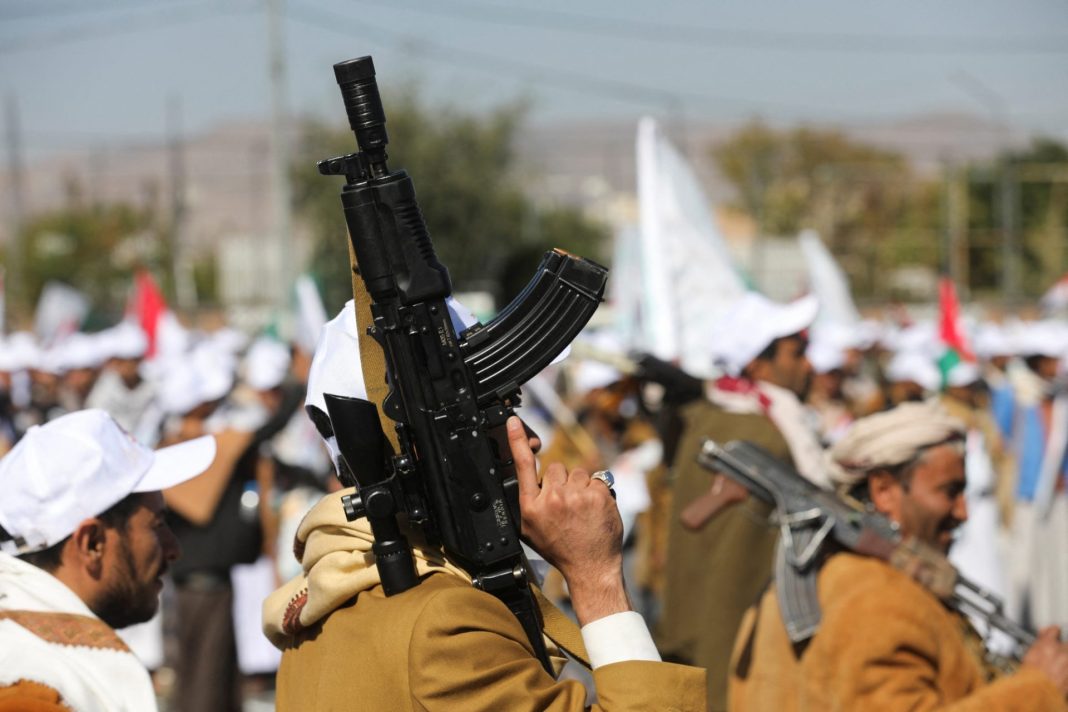Members of Russia’s GRU military intelligence are operating in the Houthi-controlled territory of Yemen in an advisory role, a senior US official told MEE, speaking on condition of anonymity and citing US intelligence.
The exact nature of the Russians’ role is murky, but the US official said that GRU officers have been operating in Yemen for “several months” to assist the Houthis in their targeting of commercial shipping, which the Houthis say is in solidarity with besieged Palestinians in the Gaza Strip.
The sensitive deployment comes as Russia has been eyeing ways to step up its support for the Houthis.
President Vladimir Putin mulled providing the Houthis with sophisticated anti-ship cruise missiles, but was dissuaded from doing so after the direct intervention of Saudi Arabia’s Crown Prince Mohammed bin Salman, MEE revealed in June.
The Wall Street Journal confirmed the report in July but added that the US is still concerned Putin could arm the Houthis, potentially as a way to dissuade the US from allowing Ukraine to strike deeper into Russian territory.
“If Russia were to give the Houthis arms, putting technical advisors on the ground would be the first step to doing so,” Samuel Ramani, an expert on Russia’s foreign policy in the Middle East and Africa at the Royal United Services Institute, told MEE.
“But it could also just be a sign of deepening cooperation. Given the Saudis’ concerns, this would be a middle ground as Putin holds off on arming the Houthis.”
The US intelligence shared with MEE did not reveal where the Russian advisors are operating.
The US anticipates the “axis of resistance”- which includes Yemen’s Houthis, Lebanese Hezbollah and Iraq’s Popular Mobilisation Forces – to take a more prominent role in a retaliatory attack on Israel compared to April when Iran directly launched hundreds of drones and missiles at Israel.
Publicly, the Houthis and Russians have been engaging more closely. In July, Putin’s top Middle East diplomat, deputy foreign minister Mikhail Bogdanov, met in Moscow with a Houthi delegation led by the group’s spokesman, Mohamed Abdel Salam.
The Houthis started firing missiles and drones at commercial ships in the Red Sea shortly after the Hamas-led 7 October attacks on southern Israel. They say the attacks have been in response to Israel’s offensive on the besieged enclave.
In January, the US started bombing the Houthis but the strikes have not deterred the group.
The US says the Houthi attacks have been “indiscriminate” but the Houthis have guaranteed that vessels linked to Russia, Iran and China are safe in the Red Sea.
Analysts say those attacks underscore the difficulty the Houthis face trying to sort through the interconnected world of global shipping, and their maritime intelligence limitations.
Current and former US officials have told MEE they believe Putin sees the rising tensions in the Middle East as a weak spot to pressure the US over its support for Ukraine.
“There is a connection between Russia’s war on Ukraine and the Red Sea,” General Frank Mckenzie, the retired commander of US Central Command, previously told MEE.
“Putin sees the US responsible for Ukrainian attacks on Russian vessels in the Black Sea. It is possible he could see doing something in the Red Sea as payback,” he added.
The US says the Houthis are relying on Iranian support to conduct their strikes, but the group also appears to be leaning heavily on open-source shipping data to draw up their target lists.
Putin’s decision to dispatch GRU officials on the ground in Yemen could be motivated by a desire to better organise the Houthis’ intelligence capabilities.
Russia is not shy about putting boots on the ground in the Middle East.
Russia’s Wagner mercenary group operates in Libya and the arid Sahel region. Russia’s military is also deployed in Syria where it supports President Bashar al-Assad. Meanwhile, in Sudan, Russia is pushing ahead with plans for a Red Sea naval base, MEE has reported.
“It makes sense Putin would want people on the ground to see how the Houthis are targeting and make sure Russian vessels aren’t hit,” Ramani stated.
